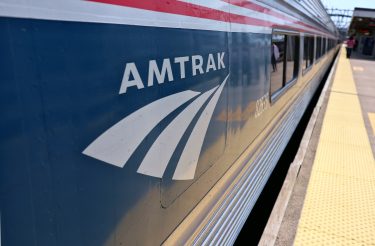Amtrak has published a new guide and webpage detailing the process for plans to invest $50 million in the West Baltimore community throughout construction of the Frederick Douglass Tunnel Program (FDT Program). This important community investment was identified as a key component of the overall FDT Program by the Federal Railroad Administration (FRA) during its approval of the Program, which will build a brand-new rail alignment and modern tunnel to replace the existing 151-year-old B&P Tunnel.
Amtrak President Roger Harris said: “Amtrak is committed to improving the Baltimore community through the Frederick Douglass Tunnel Program and these future investments will play an important role in achieving that goal. We are working diligently to administer the Baltimore Community Investment Program effectively and efficiently over the coming months and years.”
FRA Administrator Amit Bose added: “The Federal Railroad Administration is proud to support the construction of the new Frederick Douglass Tunnel in Baltimore and support other transformative rail projects along the Northeast Corridor through President Biden’s Bipartisan Infrastructure Law. Amtrak has developed an innovative community investment approach, which includes targeted investments that will address unique project impacts determined through a comprehensive federal environmental review process. We are pleased that this new guide sets the stage for future investments in the local community consistent with the Record of Decision.”
What does it mean?
Amtrak will award grants to qualified not-for-profit organisations or city/state government entities, as well as make direct investments in the community. These grants and direct investments will support projects located within ¼ mile of the Program alignment*, across six investment categories:
community development
workforce development
publicly owned parks and recreation facilities
community gardens, vacant lot greening or creation of public open space
transportation
historic preservation
CIP background
When FRA approved the FDT Program’s Preferred Alternative in 2017, it issued a Record of Decision (ROD) outlining mitigation measures that must be implemented during the Program’s design and construction. These ROD requirements included the CIP.
Funding
The CIP is part of the overall FDT Program, which is funded by a Federal Railroad Administration (FRA) grant made possible by the Infrastructure Investment and Jobs Act (IIJA), as well as contributions from Amtrak and the State of Maryland.
The FDT Program will deliver enduring transportation improvements for the Northeast Corridor (NEC), create economic opportunity, improve connectivity and upgrade local infrastructure in West Baltimore.
This includes a state-of-the-art tunnel for electrified Amtrak and MARC passenger trains, a new ADA-accessible West Baltimore MARC Station, the replacement of multiple city bridges that require repair or replacement, and remilling, regrading, or repaving several streets in the Program alignment area.
This CIP Guide will be refined and updated over time as this unprecedented community investment program evolves. Amtrak is working with FRA to develop a formal community grant application and award process, as well as to finalise other CIP requirements necessary for effective community investments.
Once the formal CIP application process launches, Amtrak will conduct extensive community outreach to help ensure eligible organizations are aware of the funding opportunities and prepared to apply.
The CIP Guide will serve as an important educational tool to help prepare eligible organisations for the formal application process.
Want to learn more?
Visit the new CIP web page or read the full CIP Guide for a deeper dive into the various community investment eligibility requirements, investment categories, CIP administration, evaluations criteria and more.
*Transportation improvement projects may occur within ½ mile of the Program alignment.


